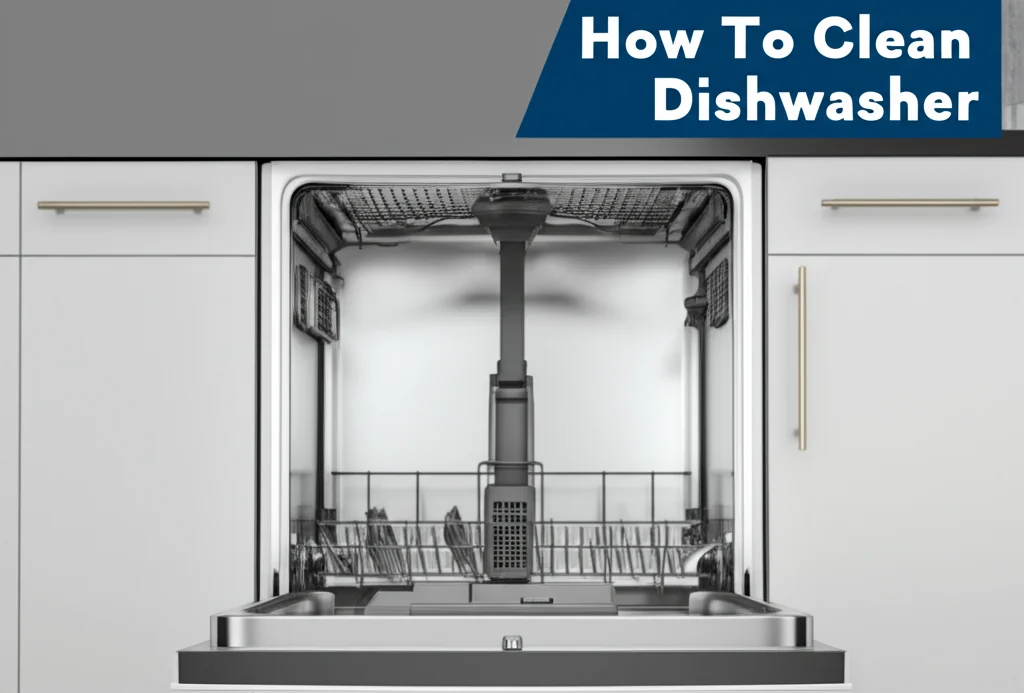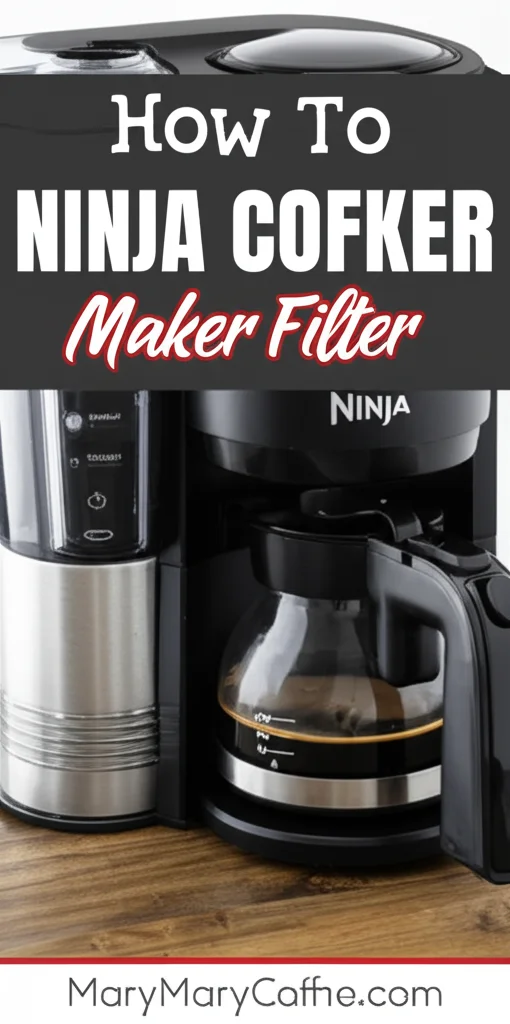· Kitchen Appliances · 7 min read
How To Clean Bosch Dishwasher

Sparkling Clean: How To Clean Your Bosch Dishwasher
Is your Bosch dishwasher not cleaning as well as it used to? Or perhaps it has developed an unpleasant odor? A clean dishwasher means cleaner dishes, and regular maintenance is key to keeping your appliance running efficiently. This guide will walk you through everything you need to know about how to clean a Bosch dishwasher, from daily upkeep to deep cleaning. We’ll cover filter cleaning, spray arm inspection, and tackling stubborn stains, ensuring your dishwasher continues to deliver spotless results.
Takeaway:
- Clean the dishwasher filter regularly (at least monthly).
- Run a vinegar cycle to remove buildup and odors.
- Inspect and clean the spray arms for blockages.
- Wipe down the door and seals to prevent mildew.
A clean dishwasher is essential for hygienic dishwashing. It prevents food particles and grime from recirculating, ensuring your dishes come out sparkling. Let’s dive into the steps to keep your Bosch dishwasher in top condition.
Why Regularly Cleaning Your Bosch Dishwasher Matters
Regularly cleaning your Bosch dishwasher isn’t just about aesthetics; it’s about performance and longevity. Over time, food debris, hard water minerals, and detergent residue can accumulate inside the dishwasher. This buildup can reduce cleaning effectiveness, cause unpleasant odors, and even damage the appliance. Consistent cleaning prevents these issues, extending the life of your dishwasher and ensuring consistently clean dishes.
Think of it like this: you wouldn’t cook in a dirty oven, so why wash dishes in a dirty dishwasher? A little preventative maintenance goes a long way. If you’re looking for a more thorough cleaning of other appliances, consider learning how to clean a commercial dishwasher for a deeper understanding of appliance hygiene.
Cleaning the Dishwasher Filter: The First Step
The dishwasher filter is the first line of defense against food particles. It’s crucial to clean this regularly, ideally once a month, or more often if you frequently wash heavily soiled dishes. A clogged filter restricts water flow, reducing cleaning power and potentially causing drainage issues.
Here’s how to clean your Bosch dishwasher filter:
- Locate the Filter: The filter is usually located at the bottom of the dishwasher tub.
- Remove the Filter: Most Bosch dishwashers have a cylindrical filter that you can twist and lift out. Consult your owner’s manual if you’re unsure.
- Rinse and Scrub: Rinse the filter under warm running water, removing any visible debris. Use a soft brush to scrub away stubborn residue.
- Reinstall the Filter: Once clean, carefully reinstall the filter, ensuring it’s securely locked in place.
Vinegar Rinse: A Natural Cleaning Solution
Vinegar is a fantastic natural cleaner for dishwashers. Its acidity helps dissolve mineral deposits, cut through grease, and eliminate odors. A vinegar rinse is a simple and effective way to freshen up your Bosch dishwasher and improve its performance.
Here’s how to perform a vinegar rinse:
- Empty the Dishwasher: Ensure the dishwasher is completely empty.
- Add Vinegar: Pour one cup of white vinegar into a dishwasher-safe bowl.
- Run a Cycle: Place the bowl on the top rack of the dishwasher and run a hot water cycle.
- Repeat if Necessary: For heavily soiled dishwashers, you may want to repeat the process.
For more stubborn odors, you can also sprinkle baking soda on the bottom of the dishwasher before running the vinegar cycle. This combination creates a powerful cleaning action.
Inspecting and Cleaning the Spray Arms
The spray arms distribute water throughout the dishwasher, and clogged holes can significantly reduce cleaning effectiveness. Regularly inspecting and cleaning the spray arms ensures optimal water pressure and coverage.
Here’s how to inspect and clean the spray arms:
- Remove the Spray Arms: Most Bosch dishwashers allow you to easily remove the spray arms by unscrewing or unclipping them.
- Check for Blockages: Examine the spray arm holes for any blockages caused by food particles or mineral deposits.
- Clear the Blockages: Use a toothpick, wire, or small brush to carefully clear any blocked holes.
- Reinstall the Spray Arms: Once clean, reinstall the spray arms, ensuring they are securely attached.
If you’re dealing with a particularly stubborn blockage, soaking the spray arms in vinegar for a few hours can help loosen the debris. Maintaining your dishwasher is important, but don’t forget about other appliances like your Bosch washing machine which also requires regular cleaning.
Cleaning the Dishwasher Door and Seals
The dishwasher door and seals are often overlooked, but they can harbor mildew and grime. Regularly wiping down these areas prevents unpleasant odors and keeps your dishwasher looking its best.
Here’s how to clean the door and seals:
- Wipe Down the Door: Use a damp cloth with a mild detergent to wipe down the exterior of the dishwasher door.
- Clean the Seals: Pay special attention to the rubber seals around the door. Use a toothbrush or cloth to scrub away any mildew or grime.
- Dry Thoroughly: After cleaning, dry the door and seals thoroughly to prevent moisture buildup.
Dealing with Stubborn Stains and Residue
Sometimes, despite regular cleaning, stubborn stains or residue may persist. For these situations, a few extra steps can help.
- Hard Water Stains: For hard water stains, use a commercial dishwasher cleaner specifically designed to remove mineral deposits.
- Rust Stains: A paste of baking soda and water can help remove rust stains. Apply the paste to the stain, let it sit for a few minutes, and then scrub gently.
- Food Stains: For persistent food stains, try pre-soaking the affected area with hot water and detergent before running a cycle.
If you notice black stuff in your dishwasher, it’s likely mold and requires a more thorough cleaning with a bleach solution (use caution and follow safety guidelines).
Frequently Asked Questions (FAQ)
Q: How often should I clean my Bosch dishwasher? A: You should clean the filter monthly and perform a full cleaning cycle with vinegar every 3-6 months. Wipe down the door and seals weekly. Regular upkeep prevents buildup and ensures optimal performance.
Q: Can I use bleach to clean my Bosch dishwasher? A: While bleach can be effective, it should be used cautiously and diluted properly. Excessive bleach can damage the dishwasher’s components. Vinegar is a safer and more environmentally friendly alternative.
Q: My dishwasher still smells after cleaning. What should I do? A: Ensure the filter is thoroughly cleaned and that no food debris remains. Run another vinegar cycle and consider adding baking soda to the bottom of the dishwasher.
Q: What if my dishwasher isn’t draining properly? A: Check the filter for clogs and ensure the drain hose isn’t kinked. If the problem persists, you may need to consult a professional appliance repair technician.
Q: Is it safe to clean delicate items like crystal in the dishwasher? A: Yes, many Bosch dishwashers have a delicate cycle specifically designed for fragile items. However, always check the manufacturer’s instructions for your crystal or delicate items before placing them in the dishwasher. You can also learn how to clean chandelier crystals in the dishwasher for specific guidance.
Conclusion
Keeping your Bosch dishwasher clean is a simple yet vital task for maintaining a hygienic kitchen and ensuring your dishes come out sparkling. By following these steps – regularly cleaning the filter, utilizing a vinegar rinse, inspecting the spray arms, and wiping down the door and seals – you can extend the life of your appliance and enjoy consistently clean dishes. Remember, a little preventative maintenance goes a long way. Don’t hesitate to consult your owner’s manual for specific instructions related to your Bosch dishwasher model. Now that you know how to clean your Bosch dishwasher, you can enjoy a cleaner, fresher kitchen!
- dishwasher cleaning
- Bosch dishwasher
- appliance maintenance




